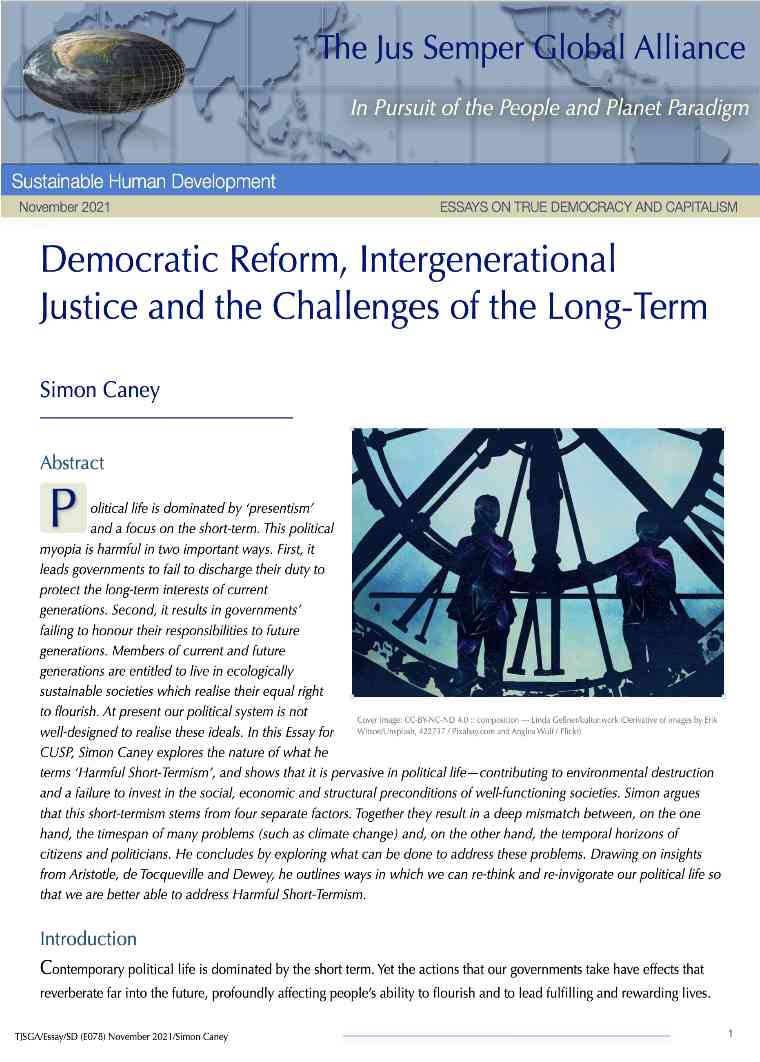Democratic Reform, Intergenerational Justice and the Challenges of the Long-Term
Simon Caney
Political life is dominated by ‘presentism’ and a focus on the short-term. This political myopia is harmful in two important ways. First, it leads governments to fail to discharge their duty to protect the long-term interests of current generations. Second, it results in governments’ failing to honour their responsibilities to future generations. Members of current and future generations are entitled to live in ecologically sustainable societies which realise their equal right to flourish. At present our political system is not well-designed to realise these ideals. In this Essay forCUSP, Simon Caney explores the nature of what he terms ‘Harmful Short-Termism’, and shows that it is pervasive in political life—contributing to environmental destruction and a failure to invest in the social, economic and structural preconditions of well-functioning societies. Simon argues that this short-termism stems from four separate factors. Together they result in a deep mismatch between, on the one hand, the timespan of many problems (such as climate change) and, on the other hand, the temporal horizons of citizens and politicians. He concludes by exploring what can be done to address these problems. Drawing on insights from Aristotle, de Tocqueville and Dewey, he outlines ways in which we can re-think and re-invigorate our political life so that we are better able to address Harmful Short-Termism. For a full read of this brief, click here or on the picture to download the pdf file. |






